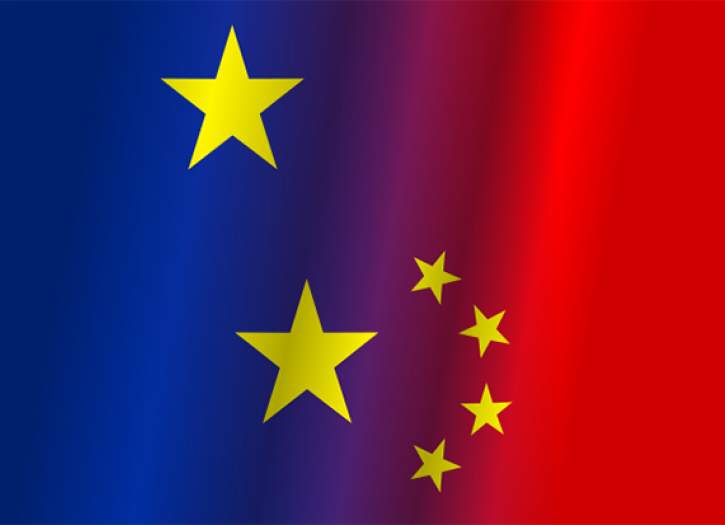
Nie masz czasu na zapoznanie się z całością artykułu?
Wystarczy, że klikniesz ikonę „oznacz artykuł do przeczytania później”. Wszystkie zapisane publikacje znajdziesz w profilu czytelnikaLetting China into the globalized economy was a mistake

JP: After 1990, the US embraced the liberal world order, which you criticize strongly. You have argued that we are witnessing the end of globalization, and that our unreserved support for globalization was misguided. What are your main arguments supporting this thesis?
Andrew A. Michta: Power politics and state competition never ended. After the Cold War we made ideological assumptions that were unmoored from the reality of what was facing us in the global system. We basically accepted the notion that what Fukuyama called the end of history would be a permanent state of affairs, rather than looking at the post-cold war period as – essentially – a strategic pause in the great power competition. We viewed it as something semi-permanent. Our belief in globalization as the fulfillment of history was combined with various theories about a kind of American hegemony and unipolarity in the system (e.g. proclaimed by Charles Krauthammer).
The American political, and increasingly business, class is finally recently beginning to realize that China has not only not democratized despite tremendous national growth (900% GDP increase in 30 years), but also that the Chinese are following the path of many rapidly modernizing and expanding nations, i.e., becoming ever more nationalistic and geostrategically assertive. There’s nothing new here. This has been the trajectory of all great powers in history. And yet we continue to pretend that this was not the case
These theories rested on an assumption that became a kind of a mantra of the liberal establishment, that institutions are apt to dominate culture, so if we build democratic and market institutions, regardless of the historical context in which a given country evolves, this will bring about democratization. These theories were a part of what we called in Western political science the “export-driven modernization theory”. The main idea of this theory is that as countries develop and modernize, a middle-class emerges, and when a certain level of income is reached (measured in purchasing power parity per individual) the middle class will then demand political participation in the process. The society will open up, meaning – to quote Bob Zoellick – that China will become a responsible stakeholder in the international system. All of these theories were based on flawed assumptions, as well as on particular economic interests, especially on the desire of corporations to manufacture for the US and global market by using – essentially – near-slave labor wages of the Chinese.
Why did this theory fail?
We locked ourselves into a policy that brought about a massive technology transfer to our peer adversary: we gave away the technology and research advantage that we had once enjoyed. And let me remind you that during the Cold War under NATO, we had CoCom restrictions that prevented us from exporting even 386 Intel-based PCs to the Soviets, because that was a dual-use technology.
Because of our ideological myopia, we’ve handed our technology to the Chinese, with the assumption that it didn’t really matter where you produce it. For the past 20 years, I have argued against this. The American political, and increasingly business, class is finally recently beginning to realize that China has not only not democratized despite tremendous national growth (900% GDP increase in 30 years), but also that the Chinese are following the path of many rapidly modernizing and expanding nations, i.e., becoming ever more nationalistic and geostrategically assertive. There’s nothing new here. This has been the trajectory of all great powers in history. And yet we continue to pretend that this was not the case.
The Wuhan virus crisis has brought home to us the extent to which we’re dependent on Chinese supply chains, so finally we have started to wake up to this reality.
Is the US really that dependent on Chinese supply chains?
The Chinese have achieved what I once called in an essay for The American Interest the radical centralization of global supply chains. 80% of all antibiotics that are prescribed in the States are made in China. The same applies to PPE equipment, etc. I have argued that this policy was mistaken. It needs to be stopped forthwith, and we need to engage in serious competition with the Chinese.
Why didn’t America see that it was waking the Chinese dragon, incorporating China into the globalized economy, in a way that allows it to retain control over resources of strategic importance?
In the Cold War we prevailed with relative ease, especially in comparison to the forecasts from the 70s, when the Russians were at their strongest, having invested heavily in defense and built the first oceangoing navy while the US was coming out of the Vietnam War. We expected that should there be a confrontation between the two superpowers that this would be a kinetic conflict with tremendous consequences. Instead, what we experienced was the de facto decomposition of the Soviet empire because of the tensions that were building up in the outer ring – in Eastern Europe (including Solidarity in Poland). The Soviets were also no longer able to compete economically, especially in the era of the digital revolution that was just over the horizon. These factors, together with a tremendous military buildup in the Reagan era, caused the Russians, in effect, to attempt to reform their system. Gorbachev fundamentally didn’t understand that allowing for political pluralism in the Soviet imperial system was likely to bring about its demise.
Rather than talking about making concessions and bringing the Chinese into the liberal international order, Trump recognizes the reality of Chinese power. Especially under Xi Jinping, China has become geostrategically assertive, and it’s dealing in this manner with other countries in the international community: with Hong Kong, Taiwan, at the India-China border
The relative ease with which we won caused people like Fukuyama and other liberal internationalists to argue that there was something “natural” and almost inevitable about the way in which liberal free trade ideology was prevailing.
What happened in the case of China?
We were projecting our values onto a civilization that is 5,000 years old. We were also assuming that there existed comparable cases in Asia that could form the basis for such judgements, e.g. Taiwan or South Korea. I was arguing already in the 1990s that these countries were not proper data sets and hence should not serve as the bases for our policy in the region. These countries do indeed present cases of very effective export-driven modernization. They have limited in-house consumption and have been selling international market access to the US and other Western countries, which has allowed them to accumulate surpluses and grow fast. But they were not completely independent great powers. They depended on the US for security guarantees and therefore on the US’s systemic requirements, i.e. moving in the direction of liberal democracy.
The real case studies are Russia and China. And Russia, after a period of about a decade of Yeltsinian implosion, has charted a very authoritarian revisionist path. Today Russia wants to revise the international order and China wants to replace it completely.
If so – why didn’t America correct its course in the 1990s or later? Why did Obama’s pivot fail?
9/11 happened, and it reoriented American thinking about national security. 9/11 allowed a number of people to develop and implement theories about the need to democratize the middle East as the precondition for security and stability international system. Keep in mind that the United States has been fighting now the longest war in its history. We’ve been at war for 20 years. This has completely restructured our military, our strategic priorities, and only now are we redirecting our priorities toward great power competition. Meanwhile, we have two aligned states against the United States, writ large: the Chinese and the Russians. I don’t want to quibble about whether they are allied states or just in alignment. What’s important is that they are operating under the assumption that the United States is the principal adversary, and that allows them to align a number of their policies.
Anyway, the so-called global war on terrorism to a large extent shifted our optics and partly explains why we didn’t respond sooner. And the second factor is corporate interests and the lobbying that has been underway: the Chinese penetration of the US educational system, of the US research and development base.
And has the Trump administration made significant changes? Has America really turned away from the liberal world order? And if so, what does that mean?
The Trump administration is doing what should have been done quite a while ago. First of all, it has recognized that communist China is an adversary. So rather than talking about making concessions and bringing the Chinese into the liberal international order, Trump recognizes the reality of Chinese power. Especially under Xi Jinping, China has become geostrategically assertive, and it’s dealing in this manner with other countries in the international community: with Hong Kong, Taiwan, at the India-China border. The Chinese are building a massive naval force, investing in A2AD domains in in the Asia Pacific. The Chinese Navy is operating now in the Mediterranean Sea area. They have tenders for a 33,000 ton nuclear-powered icebreaker as they penetrate into the Arctic.
We cannot just contain the Chinese. We have to outcompete them. We have to beat them at their own game. We are very well-positioned to outcompete the Chinese in space and biotech and other areas, but we need to take a very hard look at our universities, how we actually educate our young men and women, especially in STEM fields
The Trump administration has recognized that this is an attempt by the Chinese to transform Western economies into tributary states. This isn’t free trade. On the one hand, China has market access, and on the other hand, it has developed a predatory market policy. The Chinese are outcompeting Western companies by subsidizing their own, largely state-owned enterprises. This is why the Trump administration finally said: enough. For the first time the Chinese have been put on notice. Also we’ve limited their access to our R&D base. As a result of that, the Chinese are going to greater lengths to exploit Europe. Their FDI in Europe has decreased a bit, but their investment in research and development in Europe is going up exponentially.
However, Trump’s trade war is broadly criticized as ineffective. China hasn’t slowed down and even Trump has withdrawn from some measures. Is the strategy achieving its aims?
First of all, I don’t believe most Chinese statistics. We hear a lot of reports about the industrial capacity of China, but I would take them with a huge grain of salt. We don’t know to what extent China can really innovate. The question is: are the Chinese really 10 feet tall? Are they really capable of moving from mass manufacturing to innovative technologies?
We have one example of that innovation: 5G and Huawei.
Yes, and this is an area that we have neglected in the West. But if you look at the structure of Huawei, about 25% of people working for the company are not Chinese. These are foreigners that the Chinese have recruited. So – again – David Goldman calls it an “imperial hoard” and not a company. It’s a company that sucks in talent worldwide and feeds on our R&D and other areas. They’re doing this in the United States as well, where they’re contracting for research at our universities and labs and insisting on having this research returned to them. We need to stop this. We’re already taking steps to end the process.
What is China’s ultimate goal?
David Goldman has a brilliant term to describe this. He says China is sino-morphing the world. China is building a new system centered around the Eurasian land power, with the supply chains running across Eurasia into Europe, into the Indo-Pacific, protected and defended by the Chinese military. And at the same time, China will confront the US in the maritime domain both in the Pacific, and – increasingly – also in the European theater.
What should the US do to win this rivalry?
First, we need to decouple our supply chains from China. And even if we do not onshore everything back to the United States, we need to create a diffuse supply network with redundancy, so that if we lose the ability to supply our markets from one source, we have alternatives. The key point is, to put it a bit flippantly: if you find yourself in a hole, stop digging – stop doing the same thing that you’ve been doing.
The second point is competition. We cannot just contain the Chinese. We have to outcompete them. We have to beat them at their own game. We are very well-positioned to outcompete the Chinese in space and biotech and other areas, but we need to take a very hard look at our universities, how we actually educate our young men and women, especially in STEM fields, in the sciences and math. Governments in both the US and Europe need to undertake a large effort to invest a lot of resources in research and development, and ultimately manufacturing. We may feel like we’re living in a digital world where designing the next big app is what it’s all about, but that app runs on silicone that we need to grow, and on systems that we need to build.
The third thing is knowledge. We know little about Chinese culture and society. We have our own stereotypes that we project onto China. During the Cold War in American universities there were so-called “Soviet studies programs”, where people learned Russian and traveled to Eastern Europe and the USSR. We produced scholars who spoke Russian, Polish, and Czech, who visited those regions, read the literature. The same should be done when it comes to China.
However, many experts argue, that the US will lose the coming competition with China. There seems to be no clear way of stopping China’s power from rising. Despite calls from the US, both European countries and non-European countries, such as Australia, are developing partnerships with China.
I think in the final analysis, the Australians will side with the United States. They talk about China being a “partner” largely in economic terms. The Australians are a source of resources and some goods for the Chinese.
Asia is a very unstructured region, unlike the Atlantic region, which has a number of highly bureaucratized legacy organizations: we’ve got NATO, we’ve got the European Union, we’ve got all sorts of networks in place and institutions. Asia is essentially a kind of traditional competitive environment that the structural overlays never took hold of, and it’s based largely on bilateral security arrangements and guarantees. Some of my colleagues argue that what’s going to emerge in Asia is a realignment in which a number of states will remain in the US-bounded order.
Which states?
Definitely Japan, South Korea, Taiwan – depending on its future , and of course Australia and New Zealand on the side of the collective West. Simply because the alternative of being stuck in the Chinese-run system is unacceptable – for historical and strategic reasons – to these countries.
China is a clear and present threat to the West, not just to the United States. In large part because of a series of policy decisions we made over the past 30 years based on very erroneous assumptions
Why?
Let’s remember what China is: a hybrid state capitalist system for unfree people. It’s an economic system that lacks the fundamental elements of a free society.
The 900% increase in GDP I mentioned – this is roughly the equivalent of someone going from living in a room with a floor made of dirt or clay to an apartment with central heating and owning a car, all within the span of a generation. This kind of transformation fuels nationalism and support for the regime. But we don’t know what China will look like when its growth rates decline, and when the free market access and access to technology decreases.
You asked the key question: is it too late for the West to push back? It’s almost impossible to determine precisely at this point, because the data is still not fully in, but I would argue that this window of opportunity has not yet closed. But if we are to seriously compete against the Chinese, we should do it now. 10 years ago, if you look at the level of automation and artificial intelligence, etc., moving most supply chains out of China, and thereby forcing companies to forfeit their labor cost advantages probably would not have been possible. We’re now at a stage where automation and artificial intelligence and other aspects can compensate for what we would be forfeiting by reshoring our companies. The Japanese have already put a considerable amount of money, about 30 percent of their total investment in China, toward bringing companies back to Japan. You will see more of that in the coming years from the United States.
To sum up: what is, in your opinion, the current state of the US-China rivalry? Are we headed towards a new Cold War, kinetic all-out war, or another scenario?
If you had asked me this before March, I would have probably told you that we’re at the beginning of about a decade of rapidly escalating competition, but because of the pandemic, the virus, the impact on Western economies, a lot our prior assumptions have been collapsed, to be honest. Assumptions about power transitions, how far we’re going to go, what the international system will look like – it all needs to be reconsidered. But the fundamentals remain.
China is a clear and present threat to the West, not just to the United States. In large part because of a series of policy decisions we made over the past 30 years based on very erroneous assumptions. And we refused to learn, even though the data stared at us in the face, because economic interests dominated the conversation while we were preoccupied with other issues. In the process we have largely de-industrialized whole sectors of American economy. Globalization basically amounted to taking US industry and shipping it to Asia to produce goods for the US and global market. As a result, we have devastated entire regions, entire industries, and largely undercut the American middle class. We have a lot of rebuilding to do. But what has to happen is for national security priorities and clear grand strategic thinking to drive the process going forward. For too long we have allowed people to make ideological leaps of faith, about what global trade will bring about in terms of systemic change. We’re finally waking up to the reality that the results are not what we envisioned.
Andrew A. Michta is the dean of the College of International and Security Studies at the George C. Marshall European Center for Security Studies in Garmisch-Partenkirchen, Germany. The views presented are his own and do not necessarily reflect those of the George C. Marshall European Center for Security Studies, the Department of Defense, or the United States Government.
Zobacz
The idea of “Solidarity” has been killed in Poland after 1989. Law and Justice fills this space only rhetorically
The tragedy of Poland is that it had to conform to the demands of the international Western community. It had to become aggressively capitalist and corporatist and it could not assert its independence. Jarema Piekutowski interviews Maurice Glasman
Khanna: Just because I'm a geopolitician by education, does not mean I'm an ideologue. Conectivity today is a battlefield for influence
Is Parag Khanna the second Fukuyama? Will we see a brutal race for the greatest possible connectedness? Or will conectivity bring peace, reduce the number of classic warfare? What will be the role of the West in this competition, and how much will the Belt and Road initiatives mean? Will nation-states fade away in favor of tribalism?
A Tale of Two Monsters and Four Elements: Variations of Carl Schmitt and the current global crisis
We have a class of scientific technocrats directing the work of a class of politicians without honour, who utterly subordinate everyone else. Only a spiritual revolution will save us now
India is, and will be a non-aligned power in the New Cold War
India is a non-aligned power; this move not only protects its own varied relations (as seen with India-Russia ties and even India-China bilateral) but also allows it to provide guidance and support to smaller economies in Asia and the Indo-Pacific
The Sino-Russian relationship should not be seen as an alliance of revisionist powers
Chinese do not feel comfortable with the seemingly endless “endism” produced by Western intellectual elites, be it Fukuyamanian “end of history” at the end of the Cold War, or the recent variant of the “end” of the so-called liberal international order (LIO)
























Trzeba miec wytrwalosc i wiare we wlasne sily. Trzeba wierzyc, ze czlowiek jest do czegos zdolny i osiagnac to za wszelka cene.